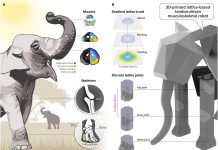
Artificial intelligence (AI) is being employed to enhance the assessment of heart disease risk by analyzing patient electrocardiograms (ECGs).
Atherosclerotic cardiovascular disease, characterized by the accumulation of fatty plaques in arteries, is a leading global cause of death, primarily driven by coronary artery disease.
A new study, published in eClinicalMedicine, suggests that ECG-AI can identify signs of coronary artery disease, including calcification, blockages, and evidence of prior heart attacks, years earlier than current risk assessment tools.
Traditional risk calculators, like the pooled cohort equation, estimate a patient’s 10-year risk for heart attacks and strokes but have limitations.
ECG is a widely accessible test that measures the heart’s electrical activity. AI can be trained to recognize hidden patterns of disease in ECG data.
Researchers at Mayo Clinic and Anumana developed ECG-AI models based on retrospective analysis of electronic health data from over 7 million patients in the U.S.
Three separate ECG-AI models were trained to detect coronary artery calcium, coronary artery blockage, and impaired movement of the heart’s left ventricle (indicating a prior heart attack).
Implications for Early Detection and Intervention
By integrating the predictions from these three ECG-AI models, clinicians can identify patients at high risk of concealed coronary artery disease and, consequently, at a high risk of heart attack.
This information can guide discussions with patients at the point of care, even for short-term risk assessments as brief as three years.
The addition of ECG-AI to traditional risk estimation tools has the potential to save lives by detecting hidden risks early.
It may also identify individuals unaware of their coronary disease, who could benefit from life-saving therapies.
Conclusion
AI-powered analysis of ECGs offers an innovative approach to improving the early detection of heart disease.
By recognizing subtle patterns in electrical signals, AI can provide clinicians with valuable insights into a patient’s risk of coronary artery disease and heart attack.
This technology has the potential to enhance patient care and contribute to better outcomes in cardiovascular health.
If you care about heart health, please read studies that apple juice could benefit your heart health, and Yogurt may help lower the death risks in heart disease.
For more information about heart health, please see recent studies about more coffee linked to heart rhythm disease, and results showing Zinc and vitamin B6 linked to lower death risk in heart disease.
The research findings can be found in eClinicalMedicine.
Follow us on Twitter for more articles about this topic.
Copyright © 2023 Knowridge Science Report. All rights reserved.



